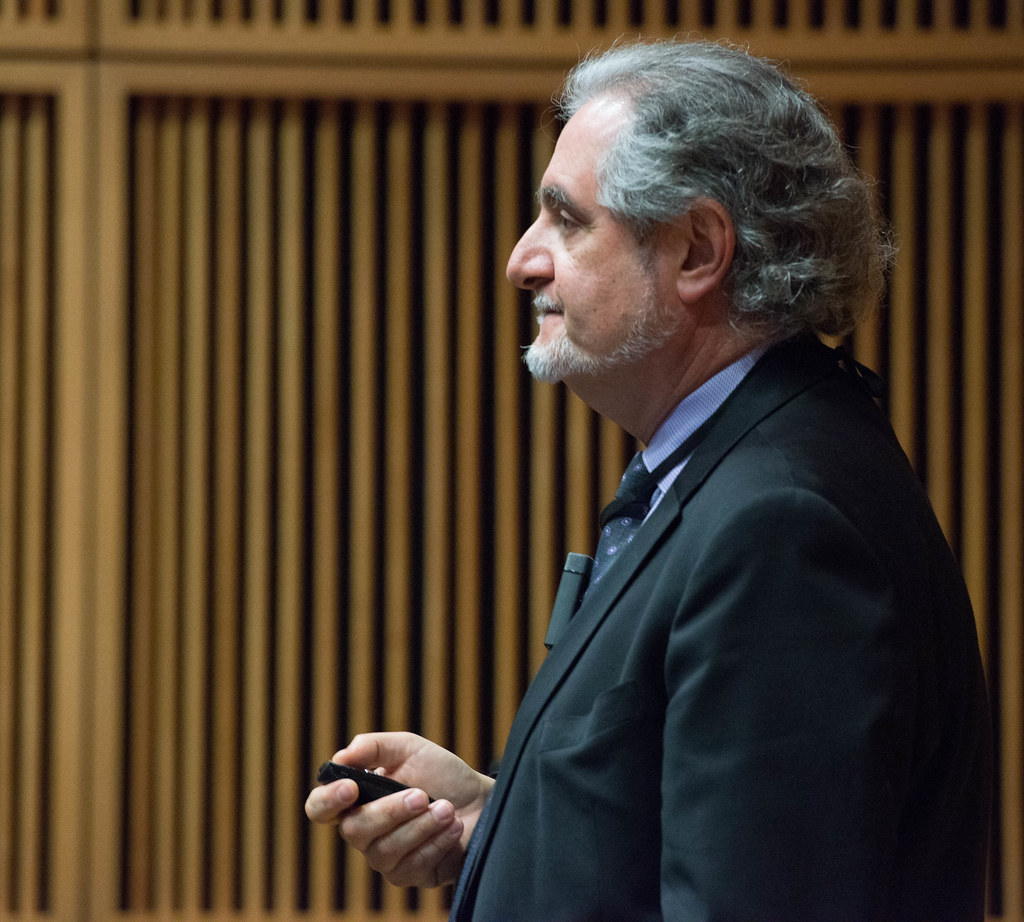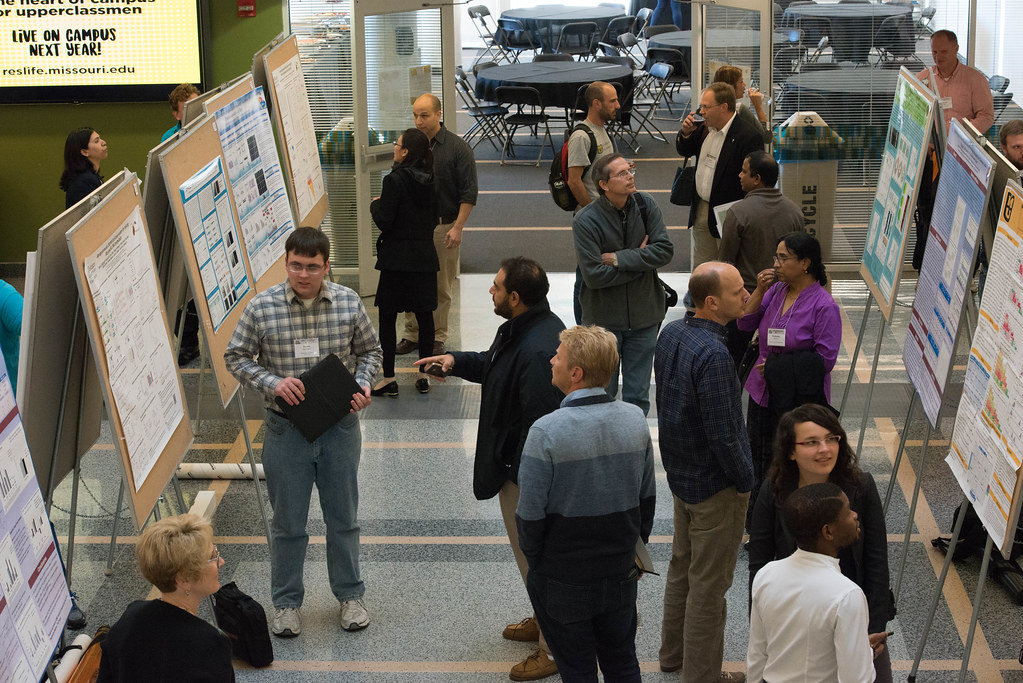
Five faculty speakers from five different universities, along with two trainees selected based on the merits of their poster abstracts, presented on current topics in epigenetics. The daylong symposium, titled Mizzou Epigenetics, took place on Wednesday, Nov. 9 at the Bond Life Sciences Center.
Dr. Jean-Pierre Issa of Temple University, the keynote speaker, said he was a stickler for the definition of classical epigenetics: stable, long-term changes in gene expression. Textbook examples of epigenetics include X-inactivation, an irreversible process that happens at the beginning of gestation, and imprinting, where certain genes are not expressed based on their parental origins.
DNA methylation is one mechanism that cells use to control whether genes are activated. The presence of methyl tags—single carbons bonded to three hydrogen atoms—act like “off” switches when attached to a region of the gene called the promoter.
Enzymes that add or remove tags are normally busiest during the embryonic development. Cancer is the exception to the rule. According to Issa, cancer presents a “chaotic picture” where methyl tags get added to regions where they don’t belong, and removed from regions where they ought to be, resulting in epigenetic shift.
The greater the epigenetic shift, it seems, the greater the age of the cell. Regardless of whether you look at mice, monkeys or humans, Issa said, from a methylation perspective, “cancers look like very very very old cells.”
He also drew connections between epigenetic shift and other conditions related to aging. For example, specimens with chronic inflammation, infection or the introduction of a new microbiome to a germ-free body tended to show a higher than average amount of epigenetic shift as their cells age. Meanwhile, mice and monkeys who were exposed to calorie restriction tended to have lower amounts of epigenetic shift over time.

Other speakers who presented on epigenetics included:
- Dr. Rick Pilsner, from the University of Massachusetts, on how paternal exposure to plasticizers affect sperm DNA methylation
- Dr. Bob Schmitz, from the University of Georgia, on the identification of mechanisms behind spontaneous epigenetics variation
- Dr. Zohreh Talebizadeh, from Children’s Mercy Hospital, on the genetics of autism
- Dr. Andrew Yoo, from Washington University, on microRNA-mediated changes in chromatin during neuronal reprogramming of human fibroblasts
The event was sponsored by Mizzou Advantage, the School of Medicine, the College of Agriculture, Food & Natural Resources, the Bond Life Sciences Center and the Chancellor’s Distinguished Visitors Program.

